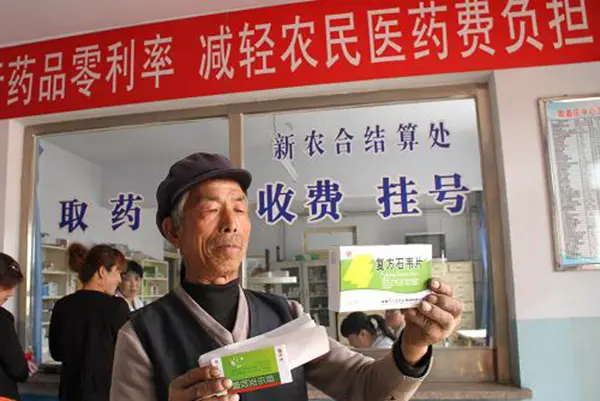By APD Writer Tao Xing
CHONGQING, CHINA, June 9 (APD) - From June 5 to 9, HK and Macao media workers made a tour to southwest China’s Chongqing Municipality, witnessing its latest developments and tremendous changes.
In last January, Chinese President Xi Jinping said the long-term interests of the nation and people should be put the priority in developing the Yangtze River Economic Belt at the symposium in Chongqing, stressing the path of prioritizing ecology and “green economy” would bring greater ecological, economic and social benefits.
The year of 2017 marks the 20-year anniversary of Chongqing to be a municipality under the central government. Over the past two decades, the city has achieved significant economic and social progress, industrial restructuring, as well as the improvement in agriculture and modern service sectors in rural areas. By developing the green economy such as featured agriculture and tourism, Chongqing has lifted many people out of poverty and builds itself as an ecological and livable city.
Visiting delegation of HK and Macao media
In the development of green economy, Chongqing resorts to online service providers and platforms such as Taobao, allowing the customers from across the country to get access to their high-quality agricultural products in a convenient way.
As an old industrial base, Chongqing is also committed to building itself as a national modern manufacturing base. For instance, the automobile industry has contributed 30 percent of the total industrial growth. The automakers, like the Chang’an Automotive Group, actively develop new energy vehicles and intelligent vehicles featuring automated internet car-making or humanless driving.
In the internet industry park of the Chongqing Liangjiang New Area, more than 50 Chinese leading enterprises and a large number of start-ups are clustering, attracting 15,000 innovative talents. Meanwhile, global experts can offer solutions to the development of emerging industries via its online research institutes.
Though located in mountain areas, the city boasts the convenient transportation. It only takes an hour from the Wuxi County to the highway, for example.
HK and Macao media visited Chongqing Changan Automobile
Featured agriculture & tourism play key role in poverty alleviation
Surrounded by numerous mountains, Chongqing has a heavy responsibility in protecting the ecological environment. It is now striving to balance the environmental protection and rural economy growth as it makes great efforts to improve the added value of the agricultural products by developing tourism and service industry. E-commerce platforms are also used to increase sales.
“The agriculture is a relatively weak industry, so we must resort to the tertiary industry to the agriculture,” said the head of Tongxin modern vegetable garden in Wan zhou District. As Chongqing’s modern agriculture demonstration area, the modern garden features a mix of agricultural production, tourism and science education. With supports of modern technology and innovation, this garden produces 10,000 tons of vegetables while receives 200,000 visitors annually.
Internet base of Chongqing Liangjiang New Area
In another modern garden that grows high-quality oranges, its president Zhu Wenxiang said the industrialization of orange plantation can increase the farmers' income while preserve water and soil of the Yangtze River zones. He added 30 percent of oranges are sold to Beijing, Shanghai and other areas via e-business. After about 10 years of development, the cultivated areas of this kind total 120,000 mu, with the production of 50,000 tons and the output value of 200 million yuan annually.
Featured agriculture and tourism have a positive effect on poverty alleviation.
Photovoltaic power generation set for poverty-relief program, Wu Xi county
Wuxi County located in northeast Chongqing is another typical agriculture county. Poverty relief is a key task of developing this mountainous region.
Wuxi County has done it utmost to develop the tourism, which has contributed 450 million yuan of income annually, added 300 jobs and lifted 200 families in three villages out of poverty. According to reports, as the forest coverage rate has reached to 70 percent, the ecological tourism has helped in environment protection and poverty alleviation.
Tongxin vegetable garden
“Thanks to the village committee and specialized cooperatives, they lent me ten breeding sheep,” said Ming Yunxiang, a villager of Wuxi county pointing to her new house. The Shuangbai village where Ming lives carries out a poverty-relief policy, which allows villagers to borrow breeding sheep to breed. By the end of 2016, the per capital income in the village has reached to 9,397 yuan.
The county boasts abundant sunlight so it set up the photovoltaic generation project. Every village is allocated two million yuan of poverty-relief fund. Among them, 280,000 yuan are used to set a 35KW concentrated photovoltaic that help earn 30,000 yuan for each village.
Sheepfold of
poverty-stricken family after poverty relief policy implemented, Tang Fang town, Wu Xi county
In the Guanfeng village, another poor village, the tourism is well developed by implementing the pattern of “company, peasant household and village”. The whole village becomes a shareholder by offering their lands while rural tourism company invests in cash. All villagers can share the gains from the rural tourism. It is reported that the number of the visitors has reached to 150,000 last year with the revenues of up to six million yuan. Each poor family increases 30,000 yuan of income.
E-commerce service station at Guan Feng villiage, to develop speciality agriculture and tourism resort to E-commerce
APD Writer He Wei also contributed to this artical.
(ASIA PACIFIC DAILY)
 简体中文
简体中文

